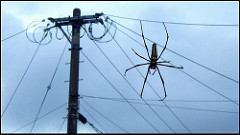Muscle cramps are defined as painful and involuntary contractions of the muscle which usually manifests itself in your leg calf muscle although any muscle can be affected. One of the easiest ways to alleviate the pain and discomfort is using massage and stretching exercises. Research has shown the right degree of balanced nutrition in your diet is potentially the most effective method to prevent cramps occurring in the first place.
When a muscle cramp begins particularly during or following exercise, it is more than likely be the result of a steady build-up of lactic acid which is a natural by product of muscle activity. If your exercise regime has been fairly strenuous and the environmental temperature is hot and humid, the muscle cramp and also be attributable to dehydration which is caused by excessive sweating particularly during exercise. Sports isotonic drinks will help to replace the fluids you have lost during exercise and the salts which are also lost through excessive sweating.
The best way to prevent dehydration especially during exercise, is to drink good amounts of water prior to, during, and after exercise. You should aim to consume at least one litre of fluids for each hour of activity. Yoghurt, breakfast cereals and lean meat containing vitamin B has shown to be beneficial for cramps in athletes, as well as cramps suffered during pregnancy and people suffering from diabetes. Muscle spasms may indicate a deficiency of calcium which is required in muscle contraction. Dairy products, sesame seeds and sardines consumed with their bones are high in calcium all helping to relieve the instances of leg cramps by increasing your intake of calcium. Magnesium is another useful source which can be found in seeds and nuts.
If you suffer from night cramps consuming foods high in vitamin C may go some way to help improve your poor circulation which is the common cause of night cramps. More common in the elderly, the addition of extra vitamin E nutrients found in eggs, cheese, fish and pork will help to prevent night cramps.
Try our top five methods of reducing cramps by adapting your diet;
1. Eat foods rich in calcium, most dairy products and sardines are a good example
2. Drink plenty of water prior to, during, and after exercise thereby helping to prevent dehydration
3. Eat plenty of nuts and seeds to increase your bodies supply of magnesium
4. Eat foods containing vitamin B such as breakfast cereals and yoghurts
5. Increase your intake of vitamin E by consuming avocados and vegetable oils.
Jamie has been writing articles online several years and runs many websites. His latest Home Gym Machines website around exercise equipment ranges is worth a visit. Read his new feature on Life Fitness Equipment and see what we have to offer.

